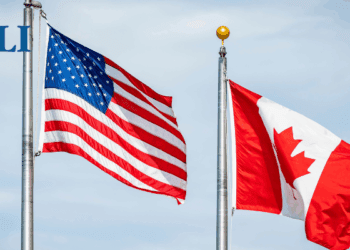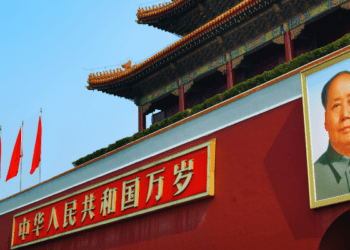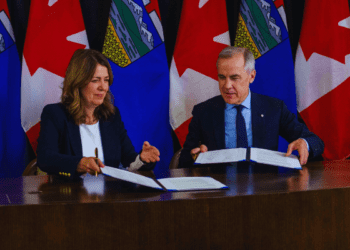 The first place United States House Speaker Paul Ryan should look as he attempts to rein in the regulatory burden on investment? Canada. Sean Speer, writing in the Washington Examiner, explains how the Canadian federal government has reduced red tape using the concept of regulatory expenditures.
The first place United States House Speaker Paul Ryan should look as he attempts to rein in the regulatory burden on investment? Canada. Sean Speer, writing in the Washington Examiner, explains how the Canadian federal government has reduced red tape using the concept of regulatory expenditures.
By Sean Speer, March 17, 2016
House Speaker Paul Ryan, R-Wis., is a border-state representative who has about an eight-hour drive to Canada. He has good personal relationships with Canadian conservatives and has spoken positively about some of Canada’s policy choices, including its competitive corporate-tax system. He may not quite be ready for honorary citizenship, but he seems prepared to import some good ideas across the border.
Which brings us to Speaker Ryan’s recent announcement of a new congressional Task Force on Reducing Regulatory Burdens. The sprawling U.S. regulatory state has grown exponentially over the past several years, becoming an obstacle to entrepreneurship, investment and job creation. The task force’s mandate is clear: To launch a regulatory-reform agenda that makes the system more accountable, transparent and conducive to economic growth.
As it seeks to carry out that mission, the task force ought to look to Canada for lessons from its experiment with regulatory budgeting.
What is regulatory budgeting? It’s a process that seeks to use traditional budget concepts to better manage regulatory costs. The goal is to require government departments and agencies to prioritize and manage “regulatory expenditures,” similar to the way governments already must manage spending.
Regulatory budgeting imposes hard caps on departments and agencies and requires that new regulatory policies fit within their respective budgets.
Regulatory budgeting is based on the premise that regulatory costs — including compliance costs incurred by individuals and businesses to conform to regulations — are conceptually similar to regular government expenditures. While governments are required to follow accounting standards and principles with respect to fiscal spending, there are no similar budget constraints or standards for regulations. It is a free-for-all. Not unexpectedly, the regulatory state grows unabated.
Regulatory budgeting imposes hard caps on departments and agencies and requires that new regulatory policies fit within their respective budgets. It may not be a silver bullet to the U.S. government’s regulatory profligacy, but with strong political leadership and a proper design, it can arrest the growth of new regulations and bring greater accountability, discipline and transparency to the process.
This is where the lessons from Canada can play a role. Canada’s federal government and the British Columbian government have experimented with regulatory budgeting over the past several years. The two governments chose different ways to implement the process (the federal government benefited by deriving lessons from the B.C. experience) but the broad brushstrokes are the same.
Departments and agencies are given a “baseline” calculation of regulatory requirements and the costs they impose on individuals and businesses, and then are expected to live within their respective budgets. This means — at least, in the case of the federal experiment — that any new regulatory requirements be offset by eliminating existing ones with equivalent “costs.” An independent, third-party panel verifies the government’s year-over-year compliance.
Evidence from both governments has been generally positive. Over the past two years, the federal government estimates the system has saved Canadian businesses more than C$32 million in administrative burden, as well as 750,000 hours spent dealing with “red tape.” Most importantly, regulatory budgeting has gradually contributed to a more disciplined regulatory process by rewarding departments and agencies for finding lower-cost options and for making existing requirements smarter and less burdensome.
Canada’s experience with regulatory budgeting can offer useful insights.
The three primary lessons from the Canadian experience are that political leadership is a critical ingredient, that the initial regulatory baseline must be comprehensive and that the methodology used to estimate regulatory costs needs to be inclusive and credible. Getting these three things right is a necessary condition for an effective regulatory-budgeting regime, as I set out in more detail in a recent paper published by the R Street Institute.
Ryan’s new congressional task force on regulatory reform is a good first step. Runaway regulation is now a major impediment to entrepreneurship, innovation and job creation. The question, of course, is what reforms should be undertaken to arrest the growth of the regulatory state.
Canada’s experience with regulatory budgeting can offer useful insights. Through trial and error, different Canadian governments have developed regulatory-budgeting regimes that bring greater accountability, discipline and transparency to the regulatory state and, in turn, improve conditions for investment and economic prosperity. Speaker Ryan and the new congressional task force should take notice.
Sean Speer is an associate fellow of the R Street Institute, senior fellow at the Macdonald-Laurier Institute in Ottawa and a past adviser to former Conservative Prime Minister Stephen Harper. He is author of the recent R Street Institute policy study “Regulatory Budgeting: Lessons for Canada.”




